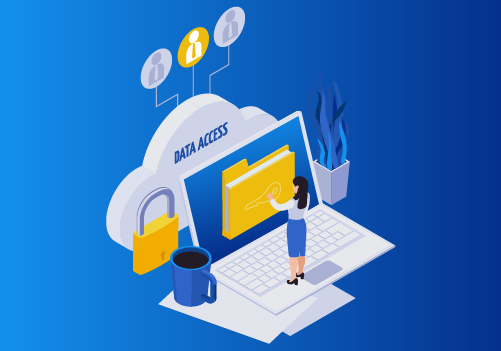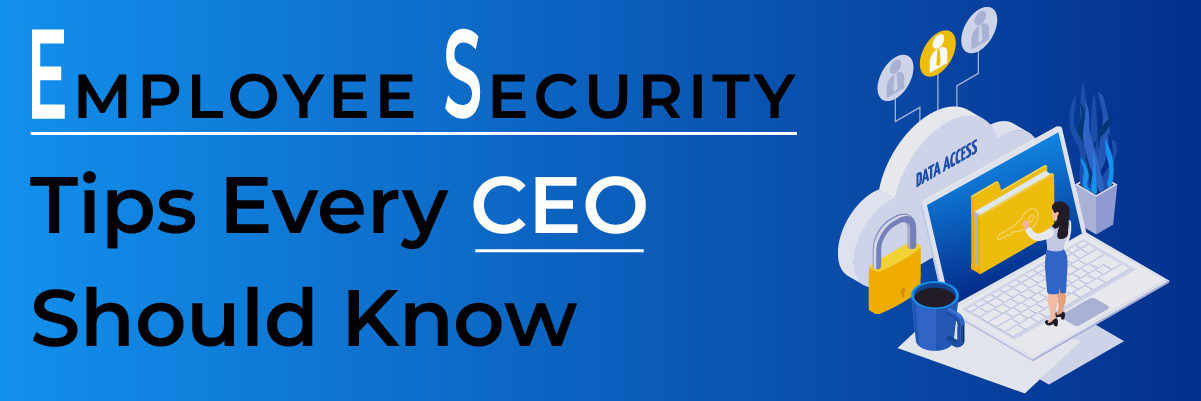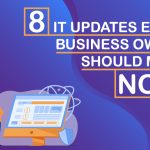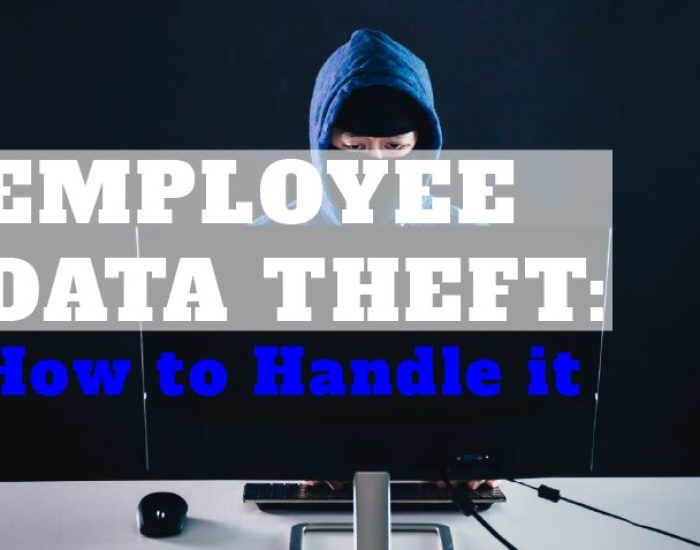10 Employee Security Tips Every CEO Should Know
CEOs are tasked with doing more to improve their security measures in the workplace in the wake of various technology security breaches. They’re also being asked to secure their employee data, as most security failures at companies occur between the employee’s computer and corporate servers.
According to Verizon, malevolent employees account for 36% of all data breaches experienced by firms with 1,000 or more workers. Employee malice was the cause of 44% of data breaches in companies with less than 1,000 workers.
To stay protected against the latest threats, a company must be proactive and IT security for small business is important. This article is about security tips every CEO should know to ensure their employees’ security.
Why is Employee Security Necessary?
Employee security is a necessity in today’s business world. As a small business owner, you want your employees to be happy and productive at work. However, cyber security tips for employees are also essential to protect your company against potential problems with your employees.
Here are some of the most important reasons why employee security is necessary:
- Allows you to protect your company from fraud or theft
- Helps to protect your company’s sensitive information
- Helps to avoid lawsuits or other legal issues
- Keeps employees safe from harm
Employee Security Tips Every CEO Should Know
As a CEO, your job is to ensure your company protects itself from cyber threats. Here are 10 cybersecurity best practices to protect your team and your business:
-
Provide Firewall Security for Your Internet Connection
Install an enterprise-grade firewall at all locations where employees are connecting to the internet through company devices or networks. Firewalls protect against unauthorized access by blocking connections from entering or leaving the network through an application gateway.
-
Teach Employees How to Store Personal Information Online Safely
IT security for small businesses tips include encouraging employees to use strong passwords and reminding them to never share their passwords with anyone else. Also, ensure they understand that emails may not be secure, even if they are coming from an official company account. Attackers can spoof addresses and send phishing emails designed to look like they’re coming from someone inside your organization. These emails often include links or attachments that contain malware designed to steal personal information from unsuspecting victims.
-
Show Them How to Use Two-Factor Authentication

If you’re worried about your employees’ safety, implementing Two-Factor Authentication (2FA_ is one of the best security measures in the workplace to protect them against being hacked. Under cloud security best practices Two-factor authentication requires its users to enter their login credentials and a randomly generated password/code will be sent via text message or email. This extra step makes it much more difficult for hackers to access an account because they’ll need both the password and the secondary code before they can log in.
-
Remind Them Not to Share Confidential Information with Any Unauthorized Individuals
This includes customers and fellow employees, especially if someone has left the company. Make sure everyone understands that it’s never OK to share sensitive information with anyone who isn’t authorized by the company—or even with other employees who aren’t directly involved in a particular company project.
-
Encourage Them to Use Strong Passwords
Password Management is important for an organization. Passwords should be changed frequently and must be strong. Limit the number of password attempts an employee can make before a system locks them out. This will prevent brute force attacks from users who have stolen your password hashes.
-
Teach Them About the Dangers of Social Engineering
Social engineering attacks involve tricking people into giving up sensitive information or performing actions they wouldn’t normally do, such as installing malware or leaking confidential documents. Make phishing awareness necessary as your employees must be aware of this threat and protect themselves against it by avoiding suspicious emails or refusing to install software unless they’re sure it comes from a legitimate source.
-
Train Them on How to Handle Phishing Attacks
Phishing attacks are one of the most common ways hackers gain access to sensitive information around the world. Employee training on spot phishing attempts and what they should do if they receive one will help to protect them against this attack.
-
Encrypt Sensitive Data and Back It Up Regularly
Your employees may need to make copies of sensitive data and send it over email or store it on cloud storage systems like Dropbox or Google Drive. That means they should be encrypting these files and back them up regularly before sending them out.
-
Don’t Forget About Physical Security
Physical security measures can protect against physical threats such as theft and vandalism. Lock doors when possible and install alarms if necessary. Use cameras with motion detectors to monitor areas such as parking lots and loading docks where thieves might target items left unattended for short periods. If you have sensitive data onsite, consider setting up an electronic surveillance system that automatically sends alerts when unauthorized persons enter the premises or tamper with equipment such as computers or servers.
-
Make Sure Your Company Has an Emergency Response Plan in Place
It may be impossible to prevent every single cyberattack on your company but having an emergency response plan will help to minimize the damage when a breach inevitably occurs. Cybersecurity awareness month with IT security for small business tips include ensuring everyone knows what steps and precautions they should take if something terrible happens, and ensure those steps align with industry best practices. For example: if an employee receives an email asking them to click on a link or download an attachment, they should never do either unless they can verify that the request is legitimate.
-
Use a VPN
Encourage your employees to use a Virtual Private Network (VPN) for secure remote access to enhance security measures in the workplace. VPNs encrypt internet traffic, making it difficult for cybercriminals to intercept sensitive information. This is especially important when employees work from home or access the company network through public Wi-Fi. Implementing VPN usage alongside strong password management practices can significantly reduce risks. Combined with phishing awareness training and BYOD (Bring Your Own Device) security policies, a VPN adds an extra layer of protection. Integrate it as part of your organization’s cloud security best practices to safeguard your data, no matter where your team is working. Promoting a BYOD security approach also ensures that personal devices accessing the network follow the same security protocols.
Final Words
Unfortunately, we live in a world where the threat of cyber security is genuine for anyone operating a business. None of us are safe from cyber-attacks. The larger your company is and the more connected you are to the world, the more vulnerable you become to these criminals.
Most CEOs recognize the importance of implementing a secure network and using best security practices. Protecting your information is vital to your company and can boost business.
At Protected Harbor, we understand how important it is for CEOs to be able to protect their security infrastructure. Our team of experts has helped many CEOs in this regard over the years, and we are confident that we can do the same for you.
We create customized security strategies tailored to each CEO’s needs, so get in touch with us today to begin the process. Our security solutions are designed to meet the challenges of the modern world, allowing CEOs to feel secure in knowing their data is being kept safe.






